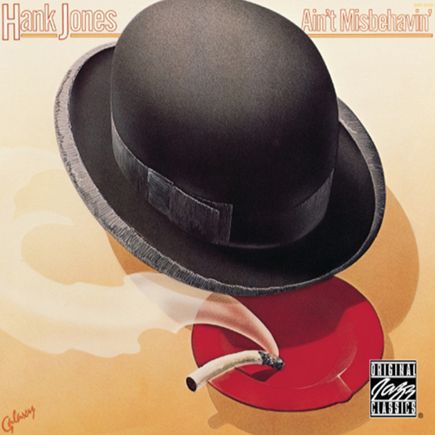Ain’t Misbehavin’: Fats Waller, Harlem et l’affirmation d’un art
Une chanson au cœur de la Harlem Renaissance
Composée en 1929 par Fats Waller et Harry Brooks, sur des paroles d’Andy Razaf, Ain’t Misbehavin’ dépasse le simple cadre du succès populaire. Pensée comme numéro d’ouverture de la revue Connie’s Hot Chocolates, présentée au Connie’s Inn, elle s’inscrit pleinement dans l’effervescence de la Harlem Renaissance. Dans un contexte de créativité afro-américaine intense, la chanson affirme une ambition artistique claire, en dialogue avec les grandes scènes new-yorkaises, notamment face au Cotton Club.
Écriture musicale et portée symbolique
Ain’t Misbehavin’ séduit par l’alliance d’une mélodie immédiatement mémorisable et d’harmonies raffinées, caractéristiques du style stride dont Waller est l’un des représentants majeurs. Le texte, centré sur la fidélité amoureuse face aux séductions urbaines, dépasse son époque. Cette tension entre légèreté apparente et sophistication musicale contribue à faire du morceau un emblème durable du jazz vocal, régulièrement réinterprété.
Louis Armstrong et le tournant décisif
Le destin du titre bascule lors des représentations au Hudson Theater, lorsqu’un jeune Louis Armstrong est invité à doubler l’orchestre de Leroy Smith. D’abord reléguée à la fosse, son intervention entre les actes devient le moment fort du spectacle. Saluée par le New York Times, cette prestation conduit à son intégration sur scène et marque une étape décisive vers une reconnaissance nationale durable.
Hank Jones et l’hommage raffiné à Fats Waller
En août 1978, Hank Jones enregistre à Berkeley un album consacré à l’univers de Fats Waller. Aux côtés du pianiste, on retrouve Teddy Edwards au saxophone ténor, Bob Ojeda à la trompette, Kenny Burrell à la guitare, Richard Davis à la contrebasse et Roy Haynes à la batterie. Ensemble, ils gravent une série d’interprétations qui ne verront le jour qu’en 1985 sous le titre Ain’t Misbehavin’.
Le projet naît dans un contexte particulier: Hank Jones était alors le pianiste du spectacle Ain’t Misbehavin’ à Broadway, une production célébrant la musique de Fats Waller qui connut un immense succès populaire et critique. Pianiste issu du swing et du bebop, il ne pratique pas le stride piano avec l’exubérance de Waller, mais préfère intégrer certains de ses éléments dans une approche plus moderne, épurée et subtile. Ses lignes mélodiques élégantes, ses harmonies aérées et sa rigueur rythmique confèrent aux pièces une profondeur nouvelle, qui témoigne de son intelligence musicale et de son raffinement.
L’album reprend plusieurs thèmes emblématiques associés à Waller, dont le fameux Ain’t Misbehavin’. À travers ce répertoire, Jones parvient à faire résonner la vitalité du stride tout en la traduisant dans un langage pianistique qui lui est propre. Sa complicité avec les solistes, notamment le lyrisme feutré de Teddy Edwards et l’autorité lumineuse de Kenny Burrell, renforce la richesse des interprétations.
Ain’t Misbehavin’: Fats Waller, Harlem y la afirmación de un arte
Una canción en el corazón del Renacimiento de Harlem
Compuesta en 1929 por Fats Waller y Harry Brooks, con letra de Andy Razaf, Ain’t Misbehavin’ supera el marco del éxito popular. Concebida como número de apertura de la revista Connie’s Hot Chocolates, presentada en el Connie’s Inn, se inscribe plenamente en la efervescencia del Renacimiento de Harlem. En un contexto de intensa creatividad afroamericana, la canción afirma una ambición artística clara, en diálogo con las grandes escenas neoyorquinas, especialmente frente al Cotton Club.
Escritura musical y alcance simbólico
Ain’t Misbehavin’ seduce por la combinación de una melodía inmediatamente reconocible y armonías refinadas, propias del estilo stride del que Waller es figura clave. La letra, centrada en la fidelidad amorosa frente a las tentaciones urbanas, trasciende su época. Esta tensión entre ligereza aparente y sofisticación musical convierte la obra en un emblema duradero del jazz vocal.
Louis Armstrong y el punto de inflexión
El destino del tema cambia durante las funciones en el Hudson Theater, cuando un joven Louis Armstrong es invitado a reforzar la orquesta de Leroy Smith. Inicialmente relegado al foso, su intervención entre actos se convierte en el momento culminante del espectáculo. Elogiada por el New York Times, esta actuación impulsa su reconocimiento nacional y consolida definitivamente el lugar de Ain’t Misbehavin’ en la historia del jazz.
Hank Jones y el homenaje refinado a Fats Waller
En agosto de 1978, Hank Jones grabó en Berkeley un álbum dedicado al universo de Fats Waller. Junto al pianista participaron Teddy Edwards en el saxofón tenor, Bob Ojeda en la trompeta, Kenny Burrell en la guitarra, Richard Davis en el contrabajo y Roy Haynes en la batería. Juntos registraron una serie de interpretaciones que no verían la luz hasta 1985 bajo el título Ain’t Misbehavin’.
El proyecto nació en un contexto particular: Hank Jones era entonces el pianista del espectáculo Ain’t Misbehavin’ en Broadway, una producción que celebraba la música de Fats Waller y que alcanzó un enorme éxito tanto popular como crítico. Pianista formado en el swing y el bebop, Jones no practicaba el stride piano con la exuberancia de Waller, sino que prefería integrar algunos de sus elementos dentro de un enfoque más moderno, depurado y sutil. Sus líneas melódicas elegantes, sus armonías ligeras y su rigor rítmico aportaron a las piezas una nueva profundidad, reflejo de su inteligencia musical y de su refinamiento.
El álbum incluye varios temas emblemáticos asociados a Waller, entre ellos el célebre Ain’t Misbehavin’. A través de este repertorio, Jones logra hacer resonar la vitalidad del stride y traducirla en un lenguaje pianístico propio. Su complicidad con los solistas, en particular el lirismo contenido de Teddy Edwards y la autoridad luminosa de Kenny Burrell, enriquece aún más la densidad de las interpretaciones.
Ain’t Misbehavin’: Fats Waller, Harlem e l’affermazione di un’arte
Una canzone al cuore della Harlem Renaissance
Composta nel 1929 da Fats Waller e Harry Brooks, su testo di Andy Razaf, Ain’t Misbehavin’ va oltre il semplice successo popolare. Pensata come numero d’apertura della rivista Connie’s Hot Chocolates, presentata al Connie’s Inn, si colloca pienamente nell’effervescenza della Harlem Renaissance. In un contesto di forte creatività afroamericana, la canzone afferma un’ambizione artistica chiara, in dialogo con le grandi scene newyorkesi, in particolare con il Cotton Club.
Scrittura musicale e valore simbolico
Ain’t Misbehavin’ colpisce per l’equilibrio tra una melodia immediatamente riconoscibile e armonie raffinate, tipiche dello stile stride di cui Waller è protagonista. Il testo, incentrato sulla fedeltà amorosa di fronte alle seduzioni urbane, supera il proprio tempo. Questa tensione tra apparente leggerezza e sofisticazione musicale rende il brano un emblema duraturo del jazz vocale.
Louis Armstrong e la svolta decisiva
Il destino del brano cambia durante le rappresentazioni all’Hudson Theater, quando un giovane Louis Armstrong viene invitato a rinforzare l’orchestra di Leroy Smith. Inizialmente relegato in buca, il suo intervento tra un atto e l’altro diventa il momento centrale dello spettacolo. Lodato dal New York Times, questo episodio segna una tappa decisiva verso il riconoscimento nazionale e consacra Ain’t Misbehavin’ nella storia del jazz.
Hank Jones e l’omaggio raffinato a Fats Waller
Nell’agosto del 1978, Hank Jones registrò a Berkeley un album dedicato all’universo musicale di Fats Waller. Accanto al pianista parteciparono Teddy Edwards al sax tenore, Bob Ojeda alla tromba, Kenny Burrell alla chitarra, Richard Davis al contrabbasso e Roy Haynes alla batteria. Insieme incisero una serie di interpretazioni che sarebbero state pubblicate solo nel 1985 con il titolo Ain’t Misbehavin’.
Il progetto nacque in un contesto particolare: Hank Jones era allora il pianista dello spettacolo Ain’t Misbehavin’ a Broadway, una produzione che celebrava la musica di Fats Waller e che ottenne un grande successo sia di pubblico che di critica. Pianista cresciuto nel solco dello swing e del bebop, Jones non praticava lo stride piano con l’esuberanza di Waller, ma preferiva integrare alcuni dei suoi elementi in un approccio più moderno, essenziale e sottile. Le sue linee melodiche eleganti, le armonie ariose e la sua disciplina ritmica conferirono ai brani una nuova profondità, testimoniando la sua intelligenza musicale e il suo raffinato senso estetico.
L’album raccoglie diversi temi emblematici legati a Waller, tra cui il celebre Ain’t Misbehavin’. Attraverso questo repertorio, Jones riesce a far risuonare la vitalità dello stride traducendola in un linguaggio pianistico personale. La sua intesa con i solisti, in particolare il lirismo ovattato di Teddy Edwards e l’autorità luminosa di Kenny Burrell, arricchisce ulteriormente la forza interpretativa dell’opera.
Ain’t Misbehavin’: Fats Waller, Harlem, and the assertion of an art
A song at the heart of the Harlem Renaissance
Composed in 1929 by Fats Waller and Harry Brooks, with lyrics by Andy Razaf, Ain’t Misbehavin’ goes beyond mere popular success. Conceived as the opening number of Connie’s Hot Chocolates, staged at Connie’s Inn, it fully belongs to the vibrant context of the Harlem Renaissance. In a period of intense African-American creativity, the song asserts a clear artistic ambition, engaging directly with New York’s major stages, notably in contrast to the Cotton Club.
Musical writing and symbolic reach
Ain’t Misbehavin’ captivates through the balance between an instantly memorable melody and refined harmonies, characteristic of the stride style in which Waller was a leading figure. The lyrics, focused on romantic fidelity amid urban temptations, resonate far beyond their time. This tension between apparent lightness and musical sophistication has made the song a lasting emblem of vocal jazz.
Louis Armstrong and the decisive turning point
The song’s destiny shifted during performances at the Hudson Theater, when a young Louis Armstrong was invited to reinforce Leroy Smith’s orchestra. Initially confined to the pit, his between-acts performance quickly became the highlight of the show. Praised by The New York Times, this moment led to his inclusion on stage and marked a decisive step toward national recognition, securing Ain’t Misbehavin’ a permanent place in jazz history.
Hank Jones and the refined tribute to Fats Waller
In August 1978, Hank Jones recorded in Berkeley an album devoted to the music of Fats Waller. Alongside the pianist were Teddy Edwards on tenor saxophone, Bob Ojeda on trumpet, Kenny Burrell on guitar, Richard Davis on bass, and Roy Haynes on drums. Together, they produced a set of interpretations that would not be released until 1985 under the title Ain’t Misbehavin’.
The project emerged in a particular context: at the time, Hank Jones was the pianist for the Broadway show Ain’t Misbehavin’, a production celebrating the music of Fats Waller that enjoyed great critical and popular success. A pianist shaped by swing and bebop, Jones did not play stride piano with Waller’s exuberance. Instead, he integrated certain elements of the style into a more modern, refined, and subtle approach. His elegant melodic lines, airy harmonies, and rhythmic discipline brought a new depth to the pieces, reflecting his musical intelligence and artistic sophistication.
The album features several emblematic themes associated with Waller, including the celebrated Ain’t Misbehavin’. Through this repertoire, Jones succeeds in evoking the vitality of stride while translating it into his own pianistic language. His interplay with the soloists—most notably Teddy Edwards’s understated lyricism and Kenny Burrell’s luminous authority—further enhances the richness and depth of the interpretations.
Autres articles – Otros artículos – Altri articoli
Ain’t Misbehavin’–19.07.1929–Louis ARMSTRONG
Ain’t Misbehavin’–02.08.1929–Fats WALLER
Ain’t Misbehavin’–13.07.1933–Duke ELLINGTON
Ain’t Misbehavin’–09.07.1935–Paul WHITEMAN & Jack TEAGARDEN
Ain’t Misbehavin’–03.03.1937–Jimmy MUNDY
Ain’t Misbehavin’–22.04.1937–Django REINHARDT
Ain’t Misbehavin’–xx.05-06.1938–Jelly Roll MORTON
Ain’t Misbehavin’–xx.xx.1944–Art TATUM
Ain’t Misbehavin’–18.05.1950–Sarah VAUGHAN


